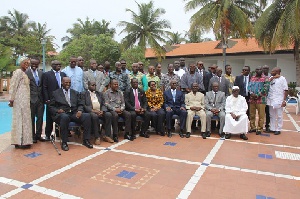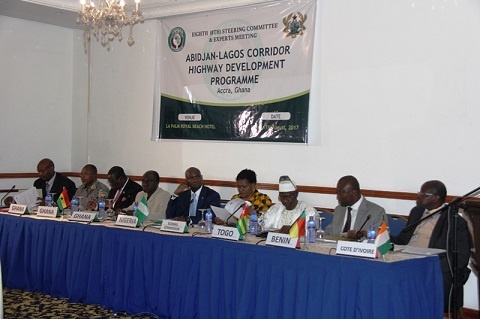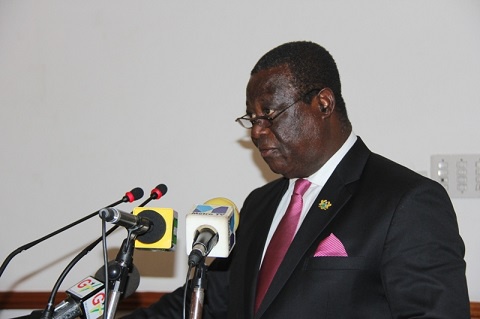 A final validation workshop was held in July at the ECOWAS Commission in Nigeria
A final validation workshop was held in July at the ECOWAS Commission in Nigeria
Government has urged the ECOWAS Ministerial Steering Committee for the Abidjan-Lagos Corridor Highway Development Programme to ensure the inclusion of local content in the choice of contractors and consultants for the implementation of the project.
Vice President Dr Mahamudu Bawumia, made the call in a speech read on his behalf by Professor Gyan Baffuor, the Minister for Planning, at the Eighth Ministerial Steering Committee Meeting for Abidjan-Lagos Corridor Highway Development Programme, in Accra, on Friday.
A total of 1,028 kilometres dual carriage highways would be constructed to link the major commercial cities of five ECOWAS countries including La Cote d’Ivoire, Ghana, Togo, Benin and Nigeria to enhance trade facilitation and regional integration.
Vice President Bawumia said, Ghana had taken a keen interest in ensuring the inclusion of her nationals in the development of infrastructure, which would offer a wide range of job opportunities for local businesses and the local labour force.
He observed that with the over 50 per cent of the corridor within the territory of Ghana, the Steering Committee should consider the issue of resettlement critically and provide clear modalities so that the country was not overly burdened with the cost of resettling the project affected persons.
“Therefore, resettlement issues should be appropriately addressed by the corridor states with payment of adequate compensation in accordance with national laws of the respective states,” he noted.
In addition, he said a robust communication strategy to market the project locally, regional and internationally to attract promoters and investors should be adopted.
“Ghana is very much committed to the spirit and letter of the treaty establishing the Abidjan-Lagos Corridor, and I will support the project by carrying out sensitisation, educational programmes, and consultation along the corridor,” he emphasised.
Vice President Bawumia gave the assurance that government would engage the communities, commuters and transporters along the corridor, to explain the objectives and benefits of the projects, as well as ensuing sustained interest and commitment of all stakeholders.
“While projecting the benefits of the project we must be mindful of the environmental and social impacts the project may have on the people in the catchment area.
“For this reason, alternative alignments for the project have been provided prior to the feasibility studies to minimise property impact and displacement.
“As much as infrastructure development is important, we should not be seen as creating social problems or unduly adversely impacting the lives of the people within the corridor of influence,” he said.
The Vice President advocated for closer collaboration among all the stakeholders along the corridor to ensure the successful implementation of the project.
He expressed optimism that the level of commitment and enthusiasm showed by the five corridor countries in the preparation for the project concerning the ratification of the treaty and agreements, would fast-track the implementation of the project.
“Ghana and ECOWAS appreciate the enormous support from the development partners for recognising the outstanding need for infrastructure development and their readiness to fund the project,” he said.
He said Ghana was prepared to accommodate the Corridor Management Authority if given the nod and making feverish preparations for provision of physical infrastructure in this regard.
The ECOWAS Heads of States in 2014 commissioned the Ministerial Steering Committee for the Abidjan-Lagos Corridor Management Authority to consider strategies and modalities for the implementation of the project.
The consultant engaged by the Commission for advisory services for early stage preparation for the project has almost completed the assignment on institutional design for the Authority and the Steering Committee would deliberate on it at the meeting.
The institutional design includes the functions and structure of the Abidjan-Lagos Management Authority (ACOMA) and comprehensive legal framework covering the intergovernmental agreement with the creation of the Authority, the enabling legislation, the international project agreement, and the rules of procedure to facilitate project implementation.
A final validation workshop was held in July at the ECOWAS Commission in Nigeria, Abuja, by technical experts from the Ministries of Infrastructure, Works, Finance, Transport and Justice of the five corridor countries.


